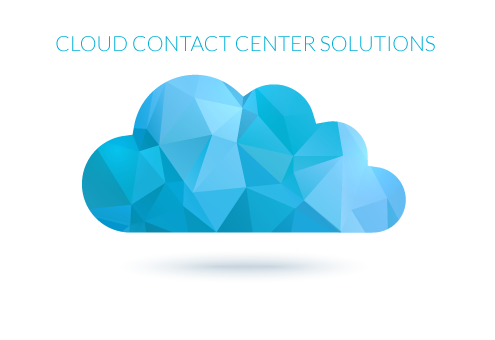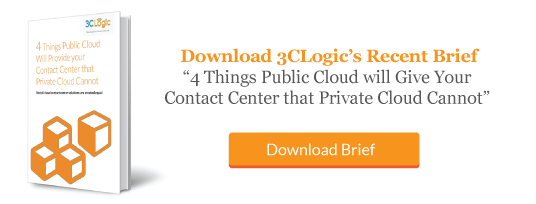 Praised for its superior scalability, reliability, and cost savings, cloud has quickly picked up speed in the contact center space, as it has eliminated the need for large up-front infrastructure investments and server maintenance. While the majority of the market continues to rely on on-premise solutions, an astounding 70% of businesses have stated a desire to transition to a cloud alternative. But while many cloud contact center solutions appear to offer similar features and functionality, there are a number of fundamental differences between them that every decision maker should be aware of before choosing a solution.
Praised for its superior scalability, reliability, and cost savings, cloud has quickly picked up speed in the contact center space, as it has eliminated the need for large up-front infrastructure investments and server maintenance. While the majority of the market continues to rely on on-premise solutions, an astounding 70% of businesses have stated a desire to transition to a cloud alternative. But while many cloud contact center solutions appear to offer similar features and functionality, there are a number of fundamental differences between them that every decision maker should be aware of before choosing a solution.
A few questions you should ask your future vendor
1) Is it hosted on a public or a private cloud?
The type of cloud a contact center solution is hosted on may not have been one of the first questions on the list—but it certainly should be. Cloud infrastructure plays a critical role in a solution’s reliability and scalability. “Private cloud” or “hosted” solutions typically run on servers that are stored in one centralized location (on the vendor’s site), leaving them subject to the same vulnerabilities as on-premise solutions such as single points of failure and downtime. And because private clouds are usually relatively small, they often encounter bandwidth bottlenecks and capacity constraints. Platforms hosted on public clouds, however, are geographically dispersed, removing single points of failure to create a more reliable network. And because public clouds such as AWS and Rackspace are so large, solutions hosted on their platforms benefit from the superior scalability, flexibility, and security they have to offer.
2) Is there a way to secure certain data and functions on premise?
Many assume that by migrating to a cloud alternative, they must give up the ability to maintain certain tasks and data functions on premise—but they’re wrong. There are some cloud solutions, such as 3CLogic’s, that have adopted a hybrid approach, enabling their clients to take advantage of the cloud’s superior reliability, scalability, and cost savings, while storing certain crucial data on-premise. Not only does this help create a more fault tolerant and redundant system, but it also enables businesses with strict compliance requirements to utilize the cloud to their full advantage.
3) How customizable is the platform?
A platform’s flexibility can have a direct effect on agent performance and company productivity. And while many cloud call center solutions say they are extremely flexible and customizable—will making modifications to meet unique business requirements cost an arm and a leg? Will it require a significant amount of time? And is it even possible?—probably worth checking. There are some cloud contact center solutions that open their APIs, enabling clients to make any necessary modifications or customizations to their system. And if you’re using a third-party database management solution (CRM, customer service management, WFO, WFM), or an internal home-grown one, make sure the contact center solution can offer a full integration with your system of preference.
4) What customer support policies and procedures are in place?
While the features, functionality, and capabilities of a solution are certainly critical components of the buying process, a vendor’s support policies and procedures should be of equal importance. And while many vendors appear to offer similar training, onboarding, and support—it isn’t always the case. There are a few key details to uncover prior to choosing a solution—Does support cost extra? Are there training documents and materials for agents to use? Is there round-the-clock support? Do they provide clients with account managers? How quickly are support issues resolved? Because at the end of the day, the contact center is only as successful as the people who are powering it. And if they don’t have the guidance and support they need, the rest doesn’t matter.





